How do I become a department head? - PDF Version
That was the question that five department heads (Anthony Chalmers, Matthias Guckenberger, Paul Keall, Isabel Lobato and Corrie Marijnen) addressed in the session entitled how to become a department head in the young track of the 2020 annual meeting of the European SocieTy for Radiotherapy and Oncology (ESTRO).
During the session the speakers and audience engaged in a lively chat discussion. Based on the chat, an ‘interview’ was reverse engineered and offered to the department heads for final feedback.
What is it like to be a department head?
Prof. Guckenberger (radiation oncologist at University Hospital Zurich, Switzerland): “It is the best job in the world, but it’s not without a price tag.”
Often people associate success with status and salary. However, Prof Guckenberger presented the Harvard Business Review success matrix, which shows that success is more complicated; it divides measures of success into four categories:
.jpg.aspx)
Awareness of these four categories could help members to find a balance, he said. For instance, focusing only on the first category might not be as rewarding as people think.
Prof. Marijnen (radiation oncologist at Netherlands Cancer Institute, Amsterdam, The Netherlands): “It can be tricky to remain a department head. It can be lonely. It can be frustrating and sometimes you may feel like leaving. In the end, once you have found the solution, you are very glad you didn't leave. Still, I really enjoy my job.”
Did you always want to be a department head?
Prof Marijnen: “I never realised I wanted this. It was more a continuum. At a certain stage I realised I was often asked to organise things, but that they didn’t always accept my ideas. That made me decide, I had better be 'the boss' myself, so that I could realise my plans.”
Prof Guckenberger: “A few years after having finished my training, it became obvious to me that being a head of department would allow me to realise my vision of radiation oncology, in clinical practice and research.”
Prof. Lobato (chief radiation therapist at Hospital do Espirito Santo, Évora, Portugal): “I never planned to become a department head. But I love my job and it makes me fulfilled each time a patient gives feedback on how our team made their journey a bit lighter. Especially since they are sometimes in contact with us over a period of more than 40 days. We are the connection between the patient and every other professional, both inside and outside the radiation oncology department.”
Is it important to excel in research and/or to have a clear vision of a career path?
Prof Guckenberger: “In university hospitals in German-speaking countries, excellence in research is very important to become a department head. For non-academic hospitals, ‘success’ in research is not mandatory but shows project management skills overall, so it is beneficial.”
Prof. Chalmers (clinical oncologist, University of Glasgow, UK): “I think it's very unusual to have a clear picture of where you want to be. Most of us change as we proceed through our careers - we learn from experience and opportunities arise unexpectedly. It is important to be flexible, I think. Some things work better than expected - others don't work at all.”
Prof Guckenberger: “Plan, adapt and be open to unexpected opportunities. And have a plan B.”
Prof Lobato: “It is very important to always keep up with the state of the art. Research is one of the parts of having a clearer vision about your career.”
What do you find the most challenging parts of your roles?
Prof Marijnen: “The most difficult thing in interpersonal contact is that you have to disappoint people. Not everyone is doing the things that are good for them or for their department. It is a challenge, but also most rewarding to get in contact and come to a joint understanding.”
Prof. Keall (director of Australian Cancer Research Foundation (ACRF) Image X Institute, University of Sydney, Sydney, Australia): “With a small research group you can keep everyone happy. When you are in a larger leadership role leading multiple persons, you need to think of what is best for the group/institute, and that will necessarily advantage some people and disadvantage others. These situations can be stressful for yourself and the teams. To make the best decision, you need to get as much input and information as you can and ensure the outcome is aligned with your mission statement. Also, you need to clearly communicate the outcome to the teams, and the rationale for choosing the outcome.”
Prof Lobato: “Knowing how to communicate with everybody, understanding all points of view, trying to work all together, for a vision and a mission.”
ESTRO is setting up a pilot mentoring programme. Do you think mentoring is important for career development?
Prof Chalmers: “I had no formal mentorship at any stage of my career, and there is no doubt that I would have benefited greatly from this.”
Prof Marijnen: “I did not have a formal mentor either. Only when I was a department head, I had some senior people I often asked for advice. It would have been good, and I say to all of you: I am convinced that mentoring junior colleagues is one of the most rewarding things in work. So do not be reluctant and find yourself a mentor, no matter what your career plans are.”
Prof Lobato: “It was very important to have mentors, because they could give me the vision and courage to always keep learning. A mentor is someone we can look up to, which may avoid mistakes in your everyday challenges.”
Prof Marijnen: “I think it is important to always keep on being coached. I feel coaching is a treat for yourself and in the end also for your colleagues!”
Prof Keall: “If you are a successful scientist or clinician, you are often put into a leadership role, which requires a complementary skill set to that which led to your earlier success. To bridge this gap, I strongly advise you to get leadership training. Leadership topics I found most useful were personal interactions, vision, goal setting, strategy and communication and finance. These were areas that I had less exposure to as a scientist.”
Is it important to be a medical doctor?
Prof Keall: “Briefly, no. Leadership is leadership and the skills are transferable. The nature of management will differ based on the profession.”
Prof Lobato: “I guess this is a question for doctors. But since I am a proud RTT head of department, only RTTs can be heads of departments for RTTs. It has to do only with personal leadership skills and how you manage them.”
Prof Marijnen: “Keep in mind that nobody has all the competencies that people look for.”
Some final advice?
Prof Marijnen: “Make sure you are happy and look after yourself; and no matter what your career plans are, look for role models. And really question yourself why you admire those people. You will learn a lot.”
Prof Lobato: “Always keep an open mind. Accept challenges and changes; never aim to make everybody happy, because you will never attain it. Do the right thing, even if it is hard. And be happy, even in hard times, keeping in mind that everything shall pass.”
Prof Keall: “Do what makes impact; and support and celebrate your peers. The work environment should be enjoyable and a place where people want to work.”
Prof Guckenberger: “Make sure you enjoy work. Invest in (private) challenges. Focus on research that can make impact. Learn how to cope with failure - accept that there was failure, analyse why you or a project failed, and do your best not to fail twice for the same reason.”
Prof Chalmers: “I once received the advice to develop a research model that I could become known for. From a biology perspective, translation research could be a pathway to leadership, since it requires development of leadership skills. Coaching; keep on doing that.
“I composed a list of characteristics of a good department head and of someone who might be better off focusing on their own research. Here it is.”
.jpg.aspx)
*MDT = multidisciplinary team
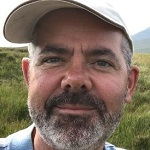
Anthony Chalmers
Chair, Department of Clinical Oncology
Institute of Cancer Sciences
University of Glasgow
Glasgow, UK
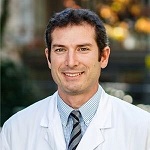
Matthias Guckenberger
Chair, Department for Radiation Oncology
University Hospital Zurich
Zurich, Switzerland
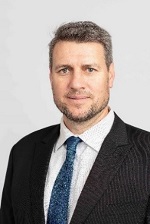
Paul Keall
Director, ACRF Image X Institute
University of Sydney
Sydney, Australia
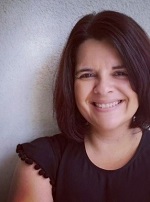
Isabel Pereira Lobato
Chief radiation therapist
Lenicare, Hospital do Espirito Santo
Évora, Portugal
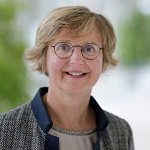
Corrie Marijnen
Chair, Department for Radiation Oncology
Antoni van Leeuwenhoek – Netherlands Cancer Institute (AVL-NKI)
Amsterdam, The Netherlands